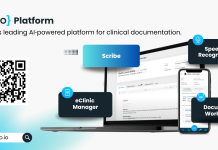There is an ever-growing need for robust data processes. Organisations must cope with changing security threats, data quality fluctuations and uncertainty in the operational environment
Collecting data is not the same as harnessing data, a fact that is gaining acceptance as there is a move toward the idea that data is a strategic asset that can help manage processes and programs more effectively and inexpensively.
Big data may mean more information but also more false information. Finding meaning in an ecosystem with multiple data types and sources is a real struggle. Transparent government demands robust data quality, which can only be achieved through agile data management.
Agility in a quality data management framework
In a quality data management framework, logic and rules can be set to deal with the highest priority data challenge. Thresholds can be set to monitor data and notify users where their specialist skills are needed. Security, access, and permissions overlay these processes so that data is only seen or amended by those with authority to do so. Recognising that agility becomes very important in this robust structure over time is important. Once the highest priority challenge is met, can the system readily allow additional validation rules or tighter thresholds?
To achieve the outcome of quality data then, it is important to give users self-service abilities to add new rules to hone data continually.
As data quality issues are resolved with additional logic, more and more can be addressed and standardised.
Constantly improving data validation rules to improve data quality through cycles of monitoring continuously leads to trusted quality data. The framework must provide full traceability, enabling the user to modify metadata and edit and replay data without always reaching out to the originating source.
The ability to easily add data sources
The ability for new and diverse data sources to be incorporated through low-code features also gives data managers the flexibility to continually get the best data into the system and through the validation and monitoring processes. Multiple data sources and the comparison between data sets allow the creation of an appropriate data catalogue containing metadata and modelling of relationships within and between datasets. Ideally, this is automated, and users need to point the system to the relevant datasets, which will undertake the first assessment, identifying the data formats, values, and ranges of data sets to be ingested. The advantages of big data and data science are based on discovery and agility—the ability to continuously mine existing and new data sources for patterns, events and opportunities.
Robust data processes allow more freedom for data managers
A robust framework combined with self-service and low-code functions means that data managers have more freedom to invest time in looking at problematic processes or data that fall out of tolerance. In this way, a low-code data solution allows data managers to carefully consider which data are likely to be of use and focus on these data. It is possible to highlight the need to change to improve the system proactively. There is a good argument that optionality or freedom of choice is, therefore, a means of robustness and antifragility. Or, to put it simply, the more options you have, the more freedom you have to respond to unforeseen circumstances and the less fragile you are to sudden events.
Low-code workflow management
Getting meaningful and actionable data from workflow management solutions follows the same principles. Low-code functions allow administrators to monitor and change the workflow so management can get the best indication of time spent on tasks by internal and external teams collaborating to complete a process.
Measures such as rework, waiting time and adjustments needed to have a complete process can be revealed. The blockages to the process can be identified and dealt with in priority order, with notifications and dashboards available to indicate steps that are out of tolerance to set values. With a fully transparent workflow solution, there is nowhere to hide so KPIs can be set fairly, monitored and adjusted. Contracts with third parties can be evaluated objectively and analysed with a full suite of audit data.
Improving data processes under adversity
The government must constantly adapt to the changing social and political landscape, which can be done more effectively through technological innovation. Accountability and transparency are critical for future-proofing the UK against the world’s most difficult problems, in which data sharing plays a critical role. Implementing agile and robust data processes can allow the government department or organisation to grow and improve under adversity. Systems with inbuilt resilience, control and, crucially, the ability of teams to configure data management without development or reliance on the IT department allow teams to thrive on agility, adaptability and speed. With robust frameworks and enterprise-grade security leading to trusted data, there is more time to focus on high-value analysis and develop analytical or data science skills. Data analysis and visualisation with time for experimentation are the foundation of learning, adapting, and succeeding.
Vital role played by Finworks
Finworks can help data leaders and their teams to rise with the big data wave to lead the digital transformation of businesses, non-profits, and government agencies. CIOs, CDOs and CTOs can use this opportunity to demonstrate leadership that is based on deep experience with data, its management, its analysis, and its use in the service of innovation, the driving force of any enterprise.
At Finworks, we have dedicated our efforts to becoming experts in the areas of data and workflow technology, providing exceptional software and service for over 20 years. Our products solve mission-critical problems by creating and interrogating complex data sets, giving our clients the power to make the right decisions and act. Finworks aims to increase data transparency through our robust and secure data fabric and workflow solutions. Our powerful, easy-to-deploy software enables organisations to continuously gather, manage, question, and learn from data and make significant ongoing improvements
as a result.

This work is licensed under Creative Commons Attribution-NonCommercial-NoDerivatives 4.0 International.











